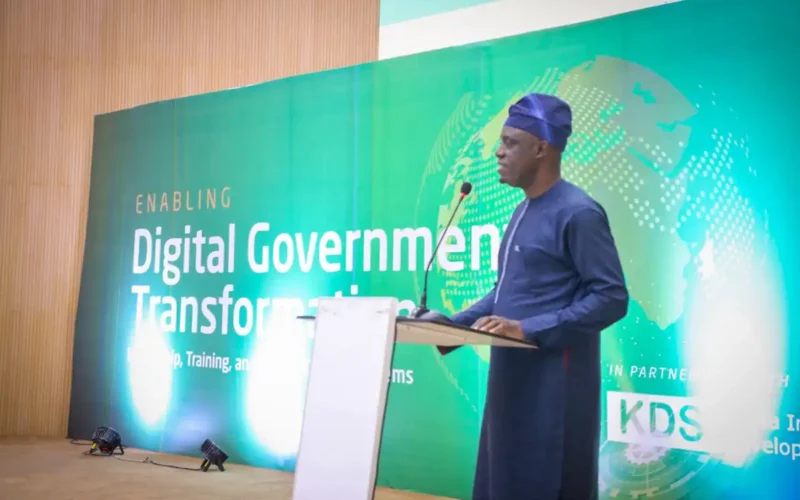Nigeria’s digital government transformation just received a significant boost with the completion of an intensive training program that equipped 438 civil servants with cutting-edge digital skills. The initiative, spearheaded by the Federal Ministry of Communications, Innovation and Digital Economy in partnership with the Korea International Cooperation Agency (KOICA), represents a strategic investment in the human capital needed to power Africa’s largest digital economy.
Learning from the Digital Leaders
The one-day intensive program in Abuja wasn’t just another government training exercise—it was a masterclass in digital governance drawn from one of the world’s most successful e-government transformations. South Korea’s journey from analog bureaucracy to digital-first government services provides a compelling roadmap for Nigeria’s own ambitious digitization agenda.
KOICA representatives shared practical insights from Korea’s experience in building citizen-centric digital platforms, emphasizing how strategic collaboration between government, private enterprises, and citizens can unlock unprecedented innovation and value creation. This knowledge transfer comes at a crucial time as Nigeria seeks to leapfrog traditional bureaucratic limitations and deliver services that match citizens’ growing digital expectations.
Beyond Basic Digital Literacy
The training program addressed several critical areas that define modern digital government:
Emerging Technology Integration: Participants explored practical applications of artificial intelligence and cloud computing in government operations—technologies that are rapidly becoming essential for efficient public service delivery. Nigeria’s embrace of these technologies positions it favorably among African nations racing to modernize their governance systems.
Cybersecurity as Foundation: With cyber threats targeting government infrastructure globally, the program emphasized robust cybersecurity frameworks as non-negotiable elements of digital transformation. This focus aligns with Nigeria’s broader National Cybersecurity Strategy and recognition that digital governance requires security-first thinking.
Flexible Learning Models: The program introduced modern training methodologies including microlearning, online platforms, and hybrid models—approaches that ensure continuous skill development can keep pace with rapidly evolving technology landscapes.
Strategic Alignment with National Vision
This training initiative directly supports Nigeria’s ambitious digital economy goals outlined in the National Digital Economy Policy and Strategy (NDEPS) 2020-2030. By building digital competencies across Ministries, Departments, and Agencies (MDAs), the government is addressing one of the most critical bottlenecks in digital transformation: human capital readiness.
The program’s emphasis on citizen-focused digital systems reflects a sophisticated understanding that successful digital government isn’t just about digitizing existing processes—it’s about reimagining how government can serve citizens more effectively, transparently, and efficiently.
Regional Leadership Implications
Nigeria’s systematic approach to digital government capacity building sends a strong signal across sub-Saharan Africa. As the continent’s largest economy and most populous nation, Nigeria’s digital government initiatives often become regional benchmarks and best practices.
The Korea partnership model also demonstrates Nigeria’s strategic approach to international cooperation—learning from proven digital leaders rather than reinventing governance digitization from scratch. This pragmatic approach could accelerate Nigeria’s timeline for achieving comprehensive e-government services.
From Training to Implementation
The real test of this program’s impact will come in the months ahead as trained civil servants return to their respective agencies armed with new digital competencies. Early indicators suggest strong institutional support, with participants noting the initiative’s timeliness and the ministry’s clear commitment to practical skill development over theoretical training.
The program’s focus on practical applications suggests that benefits should manifest relatively quickly across government operations. Enhanced efficiency, improved citizen experience, and better alignment with global governance trends are the immediate targets, but the longer-term vision extends to positioning Nigeria as a regional hub for digital government innovation.
The Broader Digital Government Ecosystem
This training initiative operates within Nigeria’s expanding digital government infrastructure, which includes:
- The Nigeria Identity Management Commission (NIMC) digital identity framework
- NITDA’s comprehensive IT standards and cybersecurity guidelines
- The Federal Ministry of Budget and National Planning’s digital planning and monitoring systems
- Various state-level e-governance initiatives gaining momentum across the federation
Innovation Through Collaboration
Perhaps most significantly, the program emphasized collaboration between government, enterprises, and citizens as the foundation for sustainable digital transformation. This inclusive approach recognizes that successful digital government requires ecosystem thinking rather than isolated agency-by-agency digitization.
The Korean experience shared during the training demonstrates how such collaboration can generate new forms of value and innovation that benefit all stakeholders while maintaining high standards of service delivery and citizen satisfaction.
Looking Forward: Scaling Digital Excellence
As Nigeria continues building its digital government capabilities, this training program represents a crucial foundation layer. The 438 newly trained civil servants become multipliers, spreading digital competencies across their agencies and contributing to a culture shift toward digital-first thinking in public service.
The success of this initiative may well determine the pace at which Nigeria can achieve its vision of becoming a leading digital economy by 2030. More immediately, it positions Nigeria to deliver the kind of efficient, transparent, and citizen-focused government services that build trust and support continued digital adoption across all sectors of society.
For other African nations watching Nigeria’s digital transformation journey, this systematic approach to human capital development offers valuable lessons about the critical importance of investing in people alongside technology infrastructure.












